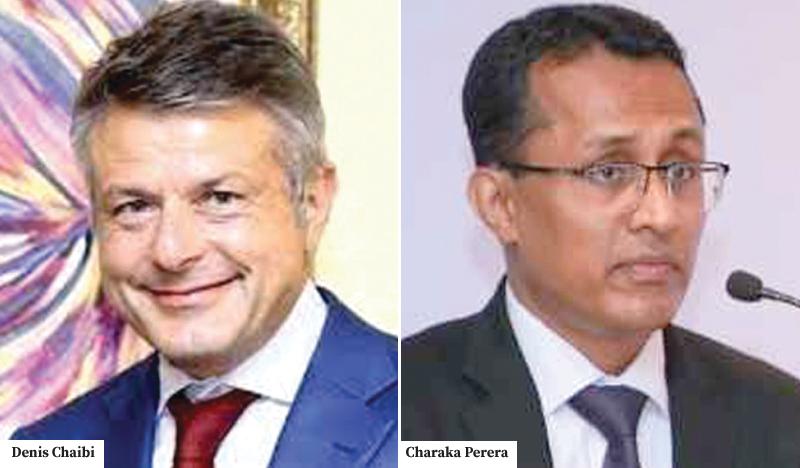
If Sri Lanka can invest around Euro 15 to 20 billion in the energy sector, the country could be totally powered by green energy, said European Union (EU) Ambassador to Sri Lanka and the Maldives, Denis Chaibi.
He was speaking at the Sri Lanka Motor Trader Association (CMTA) organised breakfast meeting at JAIC Hilton last week.
He said that Sri Lanka has enough and more natural energy producing sources such as water, sun, wind and what is needed are investments and direction to extract energy from these sources. He said that the EU is also ready to support an initiative in this regard.
This move will lead towards zeroing Sri Lanka’s total import bill on fuel and coal which annually will run into billions of dollars and create a cleaner environment as well. He said that this shift is happening very successfully in Europe.
He said that in the transport sector too diesel and petrol vehicles are moving out of production and use and people are using vehicles that are powered by Eclectic (EV). This shift is happening in the public transport sector too.
“As there is a good private sector transport network and also reliable call cab services like Uber, the younger generation is not considering buying a car as their priority.
The sales of EV vehicles which were around 2% in 2019 has now zoomed to around 25% in Europe.
Many of the European cities too have laid down tough conditions for vehicles powered by diesel and petrol entering their cities. This shift is fast spreading to smaller cities as well.
Chairman CMTA and Director / Chief Operating Officer Stafford Motor Co. (Pvt) Ltd, Charaka Perera said that caution should be expressed when exotic luxury electric cars are imported to the country under the Migrant Worker Scheme. “Most of these are having exorbitantly high FOBs and being retailed from Rs.30 million to Rs.150 million and are being catered to only the affluent.
“A majority of those electric cars do not have the backing of the global manufacturers and the manufacturer warranty and recall facilities may not be available through the local agent and there are no spare parts for most of these vehicles.
“If the agent doesn’t import and the country has to spend a substantial amount of forex to stock spares for these models, which is not the case with conventional models,” he said.
He requested authorities to consider Plug-in hybrid electric vehicles (PHEV), Hybrid and petrol vehicles to the Migrant Worker Scheme. “That would actually benefit the majority segment of migrant workers, as such vehicles are well accepted by the masses and have much less negative future impact.”
CMTA also appreciated the move by the Minister of Transport Dr. Bandula Gunawardane for taking steps to gradually convert the public transport to electric, which is a step in the right direction and one which has been taken by many developing countries.
Electric mobility on public transport results in more people being transported in fewer vehicles with less environmental pollution.
